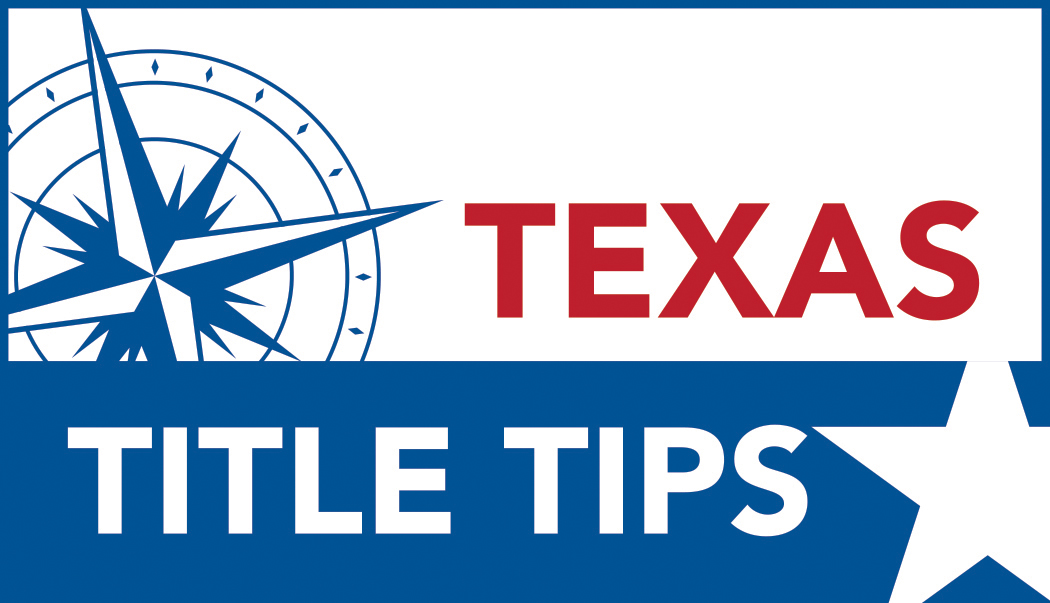
TO: Alliant National Texas Agents
DATE: May 4, 2022
SUBJECT: Affidavits of Heirship – FAQs
DATE: May 4, 2022
SUBJECT: Affidavits of Heirship – FAQs
Download as a PDF
Question:
How soon after the death of an owner can we close and insure based on an Affidavit of Heirship (“AOH”) instead of requiring a probate of their estate?
Answer:
It depends. Although we prefer not to insure using an AOH when the death was less than 6 months ago, under
certain circumstances we will do so, although our requirements will be more stringent due to the risks involved in a
recent death. We make decisions on a case-by-case basis after we learn the facts.
The requirements for an AOH include:
The requirements for an AOH include:
- Determine if there is a Will;
- If there is a Will, compare the Will to the AOH to see if Will devisees differ from the AOH named heirs;
- Require a copy of the death certificate;
- Search online for an obituary (if there is one);
- Address any Medicaid Estate Recovery Program (MERP) issues;
- Review the AOH questionnaire and the AOH.
- Determine if there are creditors who could have a claim against the real property:
- Must obtain evidence of payment of the funeral;
- Must obtain evidence of payment of costs of last illness. Examine the death certificate for location of death. If in a hospital/medical facility, we may need a letter from the facility that no amount is due or facility will only seek payment from insurance;
- Require credit report for the deceased (all but last four of social security number can be blacked out) to determine if there are debts of the estate that must be paid.
Question:
Does Alliant National want to review all AOHs before closing?
Answer:
Yes, we want to review all AOHs. If possible, we want to review before execution in case we need to require
changes. In order to facilitate our review, we need the following information:
- Commitment – preliminary commitment if you have not yet issued it.
- Last vesting deed and, if different, the vesting deed where the deceased party (decedent) took title.
- Information you gathered about the life of the decedent – checklist and/or questionnaire.
- Copy of the Will, if the decedent left a Will.
- Obituary and death certificate for the decedent.
Question:
I have heard one close member of the family and two “disinterested” persons should sign the affidavit. Can you give
some examples?
Answer:
A surviving spouse is usually the person who knows the most about the financial affairs of the decedent and
whether there was a Will or a need to probate the estate. They should be the primary or ‘interested’ affiant if
possible. If there is no surviving spouse, then a sibling or a child usually steps in.
An obituary can help identify family members that survived the decedent. We are looking for two disinterested corroborating witnesses who knew the decedent during most of his/her life, but who do not stand to profit based on the facts in the affidavit. Often the best “disinterested” corroborating affiants are family members who do not inherit, such as parents, siblings, aunts/uncles, nieces/nephews, or cousins.
An obituary can help identify family members that survived the decedent. We are looking for two disinterested corroborating witnesses who knew the decedent during most of his/her life, but who do not stand to profit based on the facts in the affidavit. Often the best “disinterested” corroborating affiants are family members who do not inherit, such as parents, siblings, aunts/uncles, nieces/nephews, or cousins.
© 2022 Alliant National Title Insurance Company
Page 1 of 1


